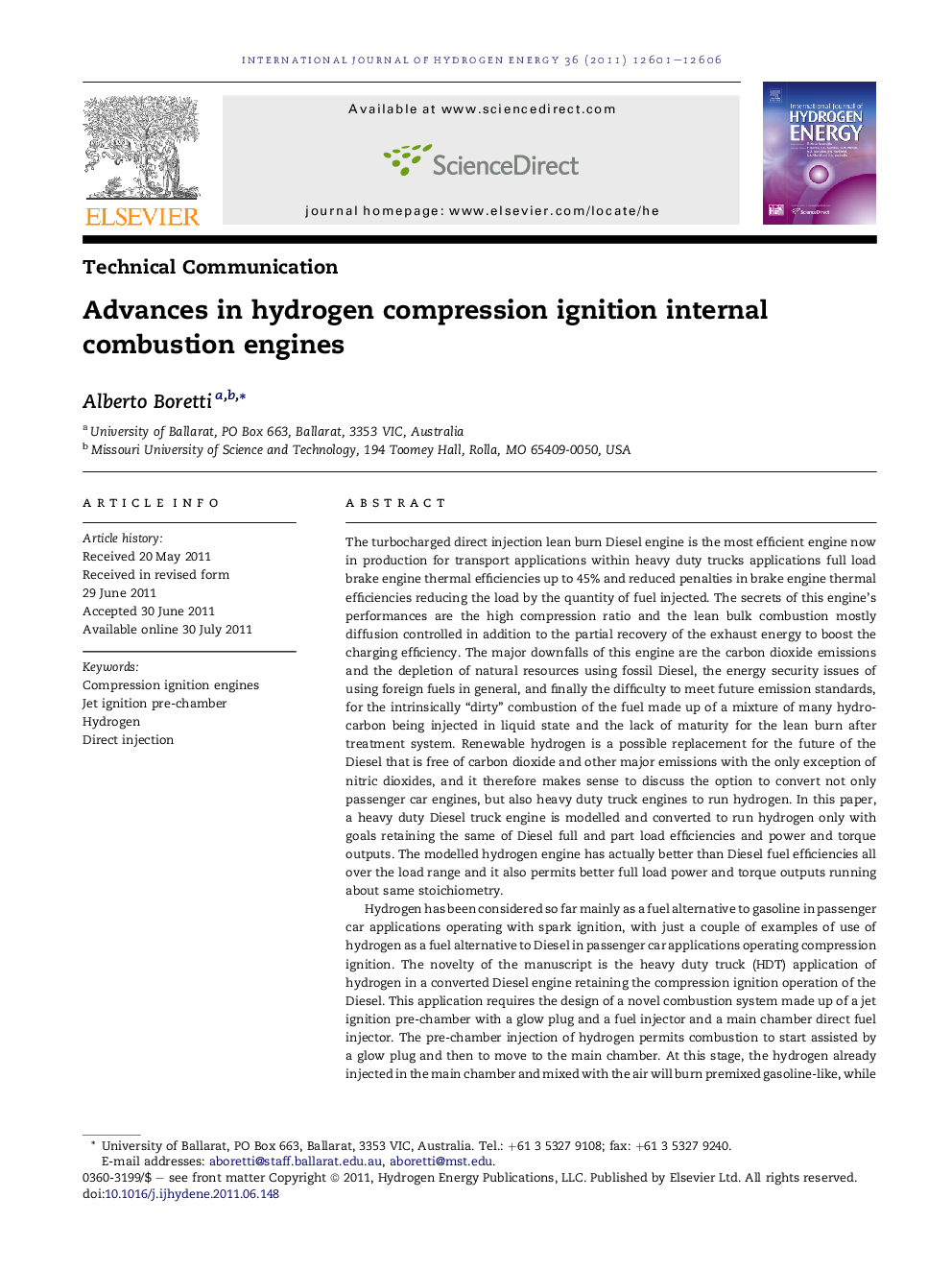| Article ID | Journal | Published Year | Pages | File Type |
|---|---|---|---|---|
| 1282463 | International Journal of Hydrogen Energy | 2011 | 6 Pages |
The turbocharged direct injection lean burn Diesel engine is the most efficient engine now in production for transport applications within heavy duty trucks applications full load brake engine thermal efficiencies up to 45% and reduced penalties in brake engine thermal efficiencies reducing the load by the quantity of fuel injected. The secrets of this engine’s performances are the high compression ratio and the lean bulk combustion mostly diffusion controlled in addition to the partial recovery of the exhaust energy to boost the charging efficiency. The major downfalls of this engine are the carbon dioxide emissions and the depletion of natural resources using fossil Diesel, the energy security issues of using foreign fuels in general, and finally the difficulty to meet future emission standards, for the intrinsically “dirty” combustion of the fuel made up of a mixture of many hydrocarbon being injected in liquid state and the lack of maturity for the lean burn after treatment system. Renewable hydrogen is a possible replacement for the future of the Diesel that is free of carbon dioxide and other major emissions with the only exception of nitric dioxides, and it therefore makes sense to discuss the option to convert not only passenger car engines, but also heavy duty truck engines to run hydrogen. In this paper, a heavy duty Diesel truck engine is modelled and converted to run hydrogen only with goals retaining the same of Diesel full and part load efficiencies and power and torque outputs. The modelled hydrogen engine has actually better than Diesel fuel efficiencies all over the load range and it also permits better full load power and torque outputs running about same stoichiometry.Hydrogen has been considered so far mainly as a fuel alternative to gasoline in passenger car applications operating with spark ignition, with just a couple of examples of use of hydrogen as a fuel alternative to Diesel in passenger car applications operating compression ignition. The novelty of the manuscript is the heavy duty truck (HDT) application of hydrogen in a converted Diesel engine retaining the compression ignition operation of the Diesel. This application requires the design of a novel combustion system made up of a jet ignition pre-chamber with a glow plug and a fuel injector and a main chamber direct fuel injector. The pre-chamber injection of hydrogen permits combustion to start assisted by a glow plug and then to move to the main chamber. At this stage, the hydrogen already injected in the main chamber and mixed with the air will burn premixed gasoline-like, while the remaining hydrogen to be injected in the main chamber will then burn diffusion Diesel-like. This innovative combustion mode is the core of the technical note.
► Compression ignition heavy duty Diesel engines may use hydrogen only. ► Further enhanced jet ignition devices and main injection injectors are needed. ► Brake efficiency may increase with hydrogen up to 47% from the 44.5%. ► Power output may increase with hydrogen up to 530 kW from the 480 kW.
